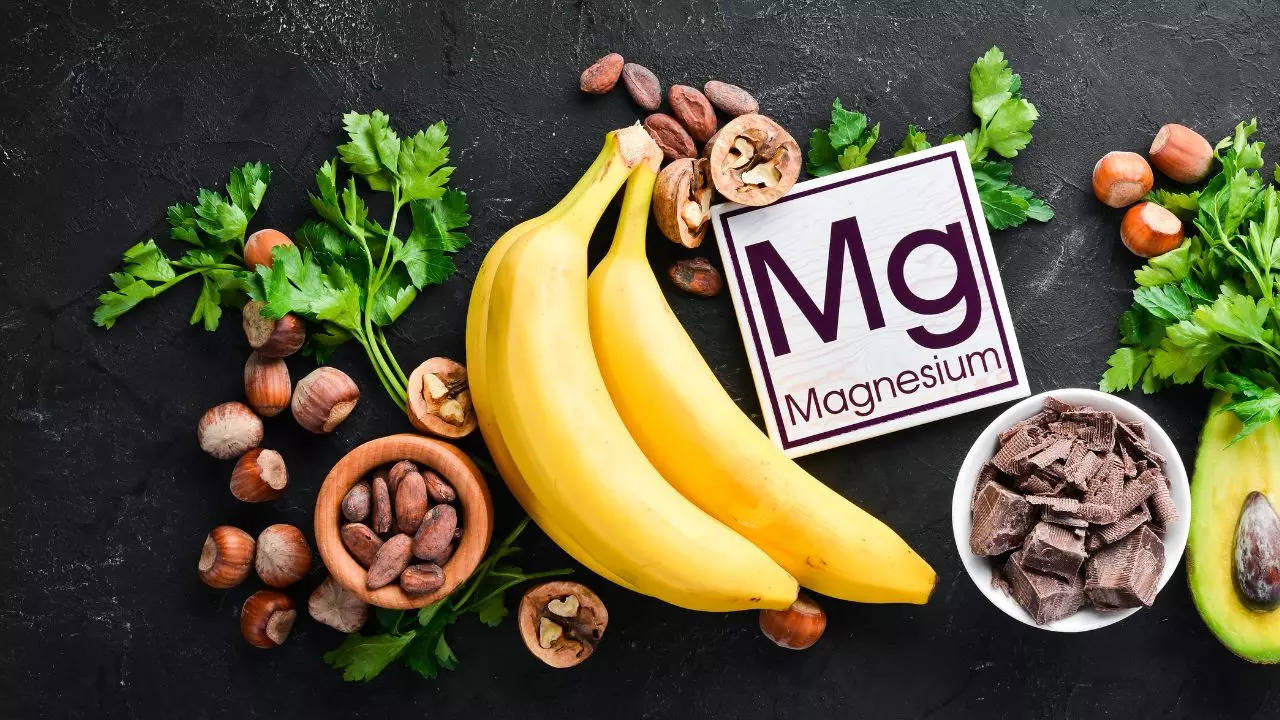
6 WARNING SIGNS THAT YOUR BODY NEEDS MAGNESIUM
Feeling tired and exhausted or struggling with cramps, then your body is indicating a deficiency of magnesium. This essential nutrient plays a crucial role in managing over 300 biochemical reactions in the body. Adequate magnesium intake supports bone health by aiding in bone formation and density, while also regulating calcium levels.
Apart from that, magnesium plays a crucial role in maintaining heart health by regulating heart rhythm and blood pressure. It supports muscle and nerve function, helps control blood sugar levels, and contributes to energy production and protein synthesis. Magnesium-rich foods such as leafy greens, nuts, seeds, whole grains, and legumes can help promote overall well-being and reduce the risk of chronic diseases like osteoporosis, cardiovascular disorders, and type 2 diabetes.
Here are six warning signs that your body might not be getting enough magnesium, along with foods that are good sources of magnesium to help fix the deficiency:
Muscle Cramps and Spasms: Magnesium plays a crucial role in muscle function, and low levels can lead to muscle cramps and spasms. Foods rich in magnesium to fix this include spinach, almonds, pumpkin seeds, black beans, and avocado.
Fatigue and Weakness: Magnesium is involved in energy production, and insufficient levels can result in fatigue and weakness. Incorporate foods like whole grains (such as brown rice and oats), nuts (like cashews and peanuts), and legumes (such as lentils and chickpeas) into your diet.
Irregular Heartbeat: Magnesium is essential for maintaining a regular heartbeat. To fix this deficiency, consume foods like salmon, dark chocolate, bananas, leafy greens (such as kale and Swiss chard), and tofu.
High Blood Pressure: Some studies suggest that low magnesium levels may be associated with high blood pressure. Foods rich in magnesium to help manage blood pressure include avocados, yogurt, figs, spinach, and potatoes.
Mood Changes: Magnesium is involved in neurotransmitter function and can influence mood regulation. To fix this deficiency, consume foods such as dark chocolate, almonds, sunflower seeds, whole grains, and legumes.
Migraines or Headaches: Magnesium deficiency has been linked to an increased risk of migraines and headaches. Include magnesium-rich foods such as quinoa, pumpkin seeds, edamame, leafy greens, and bananas in your diet to help alleviate these symptoms.
Incorporating these magnesium-rich foods into your diet can help address deficiencies and support overall health. However, if you suspect you have a magnesium deficiency or experience severe symptoms, it's important to consult with a healthcare professional for proper diagnosis and treatment. They may recommend supplements or additional interventions based on your individual needs.